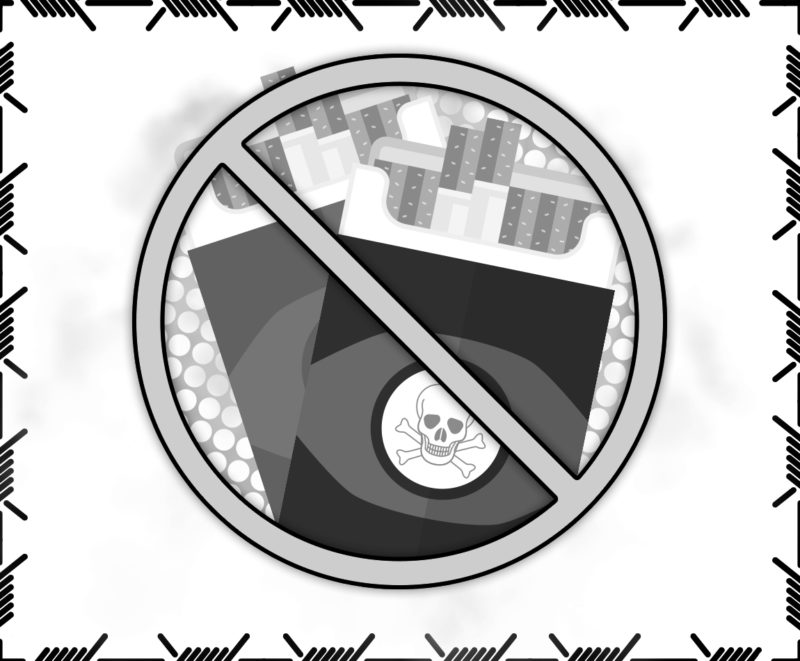The administration has begun to reveal a plan to make Trinity a tobacco-free campus.
Katherine Hewitt, coordinator for wellness services on campus, said that Trinity’s students care about issues regarding health and wellness.
“Our students are passionate about health and wellness. They utilize our Bell Center really well, they come see counseling services for mental health issues. They’re passionate about environmental wellness. They want to see a clean campus, they want to see people recycling,” Hewitt said.
Hewitt said that a tobacco-free campus would support the views of both students and faculty.
“Tobacco free ties in with all of those things. Where we work, where we live, where we study “¦ it should be clean and it should be healthy. If we’re not promoting a tobacco-free environment, that doesn’t line up with our values. That doesn’t line up with the strategic plan,” Hewitt said.
Hewitt cited support for the plan and outlined a few of the benefits of having such a program on campus.
“It’s not too difficult to implement, and we have a lot of people supporting us, especially from the faculty and staff level. We’re trying to promote it to students and we’ve had some great feedback from them as well. Considering all their other health priorities, it lines up with what they aim to do. One day we hope to tell an incoming class that this is a tobacco-free campus. It cuts down on trash on the ground, it limits second-hand smoke exposure. There’s just so many benefits,” Hewitt said.
The main way for the school to implement such a rule, according to Hewitt, would be to take away the designated smoking areas and receptacles on campus.
“Right now, outside of campus buildings, specifically residence halls for example, people can smoke a certain number of feet away from an exit,” Hewitt said. “So that would just go away. So you see a lot of those containers where people can extinguish their cigarette butts, and those would go away as well. You wouldn’t see any of those receptacles because there just wouldn’t be any smoking.”
Genevieve Robinson, a junior history major, is skeptical that the plan will work and believes it might create a new problem of littering.
“I think getting rid of the receptacles won’t solve the problem, and I think people are just going to smoke regardless. It’s just going to end up with more people littering. The idea of having a tobacco-free campus is nice, but it won’t happen. It’s not going to actually work, and it’s going to create a bigger problem,” Robinson said.
Students and faculty have made some complaints about smoker areas on campusàŸ.
“I’ve gotten a lot of feedback from students and faculty alike that there are areas where they don’t like to hang out because there’s always smoke around there. I don’t know if it’s easier to smoke, or more comfortable or more private, but those areas would phase out. It wouldn’t be as accessible, and socially would look different,” Hewitt said.
Junior Sophia Spurlock was supportive of the initiative.
“When you’re walking to class and there’s someone in front of you smoking, and it gets in your face and you smell it “¦ It’s pretty nasty. So if they banned it, that theoretically wouldn’t happen any more,” Spurlock said.
The plan to remove tobacco consumption from Trinity is aimed at preventing tobacco use, not to crack down on those who smoke.
“We’re not saying you have to quit smoking or using your tobacco products; you just won’t be able to do it on campus. If you’re off campus, you can do what you want. But if you’re on campus, we’re trying to be healthy, so it’s a bit different,” Hewitt said.
It is still unknown when the proposal will take effect, but there will be a town hall to discuss the measure before it is implemented.







